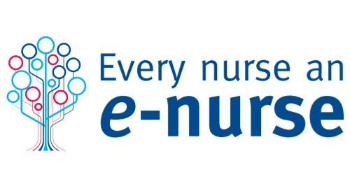
Information, data and media literacies
This domain covers three closely connected capabilities. Data literacy is about improving your understanding of how data works. Data is a product of our digital world. You need to manage and refine it like a raw material. Your ways of working depend on the information you derive from data.
Information literacy is about learning to make better decisions and choices from the information available to you. Can you make information work for individuals and for public benefit? Your work will depend on your ability to use a range of media. You need to understand which tools are most effective in a given context.
This domain involves you demonstrating:
- the ability to find, manage, organise and store digital information
- the ability to understand, to create and to communicate digital messages across a range of digital media e.g. graphics, text, audio, animation
- the ability to understand and act upon appropriate guidelines, protocols and safeguards in the use of differing media and data
- the ability to critically analyse and/or interpret information and data
- the ability to demonstrate and champion the effective, secure, appropriate and innovative use of data and information.
(HEE digital literacy domain descriptors)
Data literacy
- I understand how data is structured and organised within health record systems.
- I can use technology to provide information about the quality of services/care given.
- I understand and comply with legal, professional and organisational requirements when using and sharing information.
Information literacy
- I can identify what and why information is needed to improve my practice.
- I can find the information resources that I require.
- I assess sources of information to determine if they are reliable and valid, e.g. search a range of sources and critically evaluate search findings.
- I can manage and apply the information to my sphere of practice and the clinical context.
Media literacy
- I use different forms of digital communication, e.g. experience and participate in simple voice video or text communications.
- I can explain the advantages and limitations of communicating electronically, e.g. time saving, resource saving, cost effectiveness, content is easily shared/saved/stored/tagged.
- I use a range of media to stay informed about current and relevant content that impact on my practice and the lives of those that I care for.
Activity ideas and resources
Cochrane. Evidence for Everyday nursing
International Federation of Library Associations and Institutions (IFLA). How to spot fake news
Open University. Being digital
Open University. Being digital. Communicating online
Open University. Being digital. Selecting the right online tools
Digital benefits
NHS England. Patient online
NHS Scotland. eHealth Good practice case studies
Page last updated - 08/10/2025






